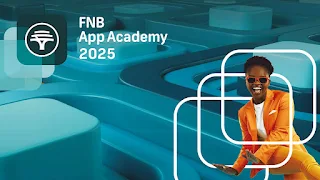The Harsh Truth About the FNB App Academy: It's Not a Shortcut Into Tech
Introduction
In a country battling youth unemployment and limited access to education, the FNB App Academy looks like a shining light. A free 9-week online coding course, backed by a respected brand, offering training in JavaScript, React, UX design, and even entrepreneurship? On the surface, it sounds revolutionary.
But as a graduate in Electrical and Computer Engineering from UCT, I’ve taken a closer look—and what I see is something much more complicated, and potentially misleading.
The Premise Sounds Amazing—But Is It Practical?
Let me give credit where it’s due. The FNB App Academy introduces learners to:
- Programming fundamentals using JavaScript
- Frontend development with React
- Basic backend using Firebase
- GitHub, design thinking, and UX principles
- Even “business development” and “AI in dev”
The structure seems logical—starting with beginner basics, then moving to intermediate, and finally a more advanced module where you build an actual app.
In theory, this is an incredible opportunity, especially for those who don’t have the means to attend university or expensive coding bootcamps. But that’s where the problem begins. Because a lot of people believe this course will get them a job in tech—and that’s simply not how the job market works.
No Degree? You're Still Locked Out of Most Jobs
Let’s be blunt: most tech jobs in South Africa still require a degree. Companies—especially the big ones—use degrees as a filter. If you’re applying to be a junior software engineer, systems developer, or even an intern at a bank or tech firm, HR won’t even look at your CV unless there’s a degree on it.
That’s not me being elitist. It’s just reality.
Having studied Electrical and Computer Engineering at UCT, I know firsthand how much depth is expected in technical roles. You’re not just writing code—you’re expected to understand systems, security, data structures, scalability, and performance. A 9-week course can’t equip you with that. And employers know it.
So what happens? Learners finish the FNB App Academy and expect opportunities to roll in. But they’re hit with the cold wall of job descriptions that start with: “Bachelor’s degree in Computer Science, Engineering, or related field required.” And just like that, they’re locked out—again.
The Mismatch Between Hype and Outcome
Let’s talk about the expectation vs reality.
The way the App Academy is promoted gives people the impression that it’s a stepping stone into real jobs—maybe even at FNB or partner companies. But the program itself is:
- Short (9 weeks)
- Non-certified (no recognized qualification)
- Disconnected from real industry pipelines
There’s no built-in internship placement, no guaranteed interviews, no official certification that carries weight with recruiters. Even the capstone project—a basic task management app—is something you could build on YouTube in a weekend.
People misunderstand what this program is. It’s not a launchpad. It’s an orientation. A glimpse. A spark. But not the fire itself.
Soft Skills Are Great—But Not a Substitute for Core Competency
The inclusion of modules like "Business Funding" and "Marketing Your App" is noble, but let’s be honest: most people signing up aren’t trying to be entrepreneurs—they’re trying to get jobs. When you don’t even have a strong foundation in backend development or full-stack systems, teaching soft skills and startup strategies isn’t helpful. It’s distracting.
What they really need is:
- Deeper technical immersion
- Job-hunting guidance (CVs, portfolios, LinkedIn, GitHub)
- Real-world projects and mentorship from devs in the field
- Opportunities to get work experience, even unpaid internships
But instead, we give them "Design Thinking" and "AI in Development"—which sound impressive but don’t help you answer a single coding interview question.
It’s Not Useless—It’s Just Misunderstood
Let me be clear: I don’t think the FNB App Academy is useless. In fact, it’s a great tool if you know how to use it properly. For people already in university, or those who’ve been self-studying coding on platforms like FreeCodeCamp, this course can be a fantastic supplement.
It gives structure. It introduces collaboration tools. It even offers basic app deployment skills. For someone who's halfway through learning React, it's a decent confidence booster.
But for someone brand new, with no tech background, and no formal education—this program isn’t enough to change their job prospects. Not unless they put in months (or years) of work afterward, building projects, learning independently, and networking like crazy.
And unfortunately, most people don’t know that going in.
What Needs to Change
If FNB and other companies really want to build future tech talent, they need to stop pretending a 9-week bootcamp is a silver bullet. Instead, they should:
- Create pathways into internships or junior roles for top-performing students.
- Partner with tech firms to offer job shadowing, mentorship, and real-world experience.
- Offer recognized credentials—whether it’s through external certs or partnerships with institutions.
- Be honest in marketing: This is a starter course. It's not a job guarantee.
We can’t keep giving people half of a bridge and acting like they’ll make it to the other side on their own.
Final Words: Let’s Be Real With People
I come from a place of privilege—I got a quality education at UCT, and even with that, breaking into the tech industry isn’t easy. So when I see these kinds of programs being hyped up, I worry. Because I know what’s on the other side: graduates who are disappointed, discouraged, and feel like they were lied to.
Programs like the FNB App Academy have potential—but only if we frame them honestly. Let’s stop calling them pipelines into tech when they’re really stepping stones. Let’s support them with the right infrastructure. Let’s tell people the truth: you still need a degree, real experience, or serious hustle to make it in this field.
Otherwise, we’re just recycling hope—and calling it progress.

Join the conversation